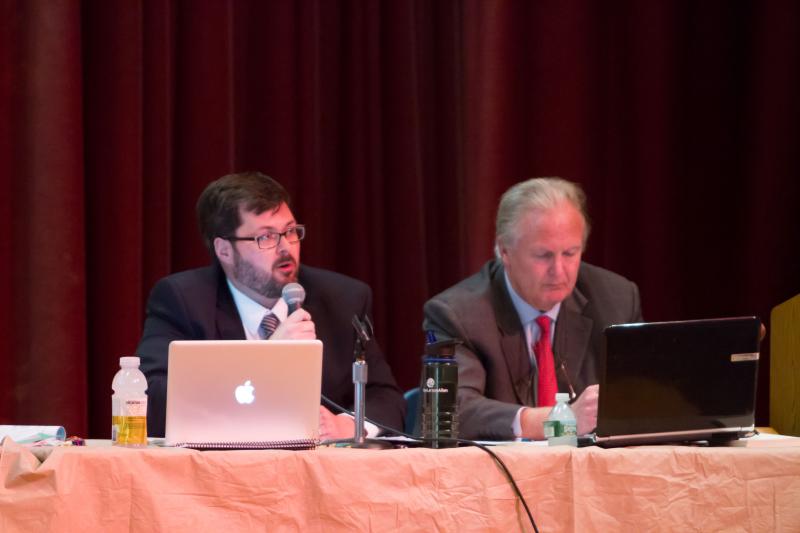Override ballot question set for June 17
Wareham voters will go to the ballot boxes on Tuesday, June 17 to decide the financial future of their town.
Selectmen approved that date at their meeting Tuesday night to pose the following Proposition 2 1/2 override question to voters: Shall the Town of Wareham be allowed to assess an additional $4.5 million in real estate and personal property taxes for purposes of funding town and school operating expenses and capital expenses for the fiscal year beginning July 1, 2014 - yes or no?
"We want to educate people about the proposal so they understand what they are voting for or against," said Finance Committee Vice Chairman Marilyn Donahue, who, along with Finance Committee Chairman Larry McDonald and others have formed the group, Invest in Wareham, in support of the override.
Donahue said the group plans on creating signs and flyers, as well as holding private and public forums alongside town and school officials to get information out to voters.
Although the Town is not legally allowed to specify where the override money will be spent beyond the next fiscal year -that is up to future Town Meeting voters- the Town does have a five-year plan in place and a commitment from the town administrator and the school superintendent.
"We have a plan that everyone is buying into, we know what we're doing in five years," she said. "The town administrator and the superintendent are very talented and committed to working through this."
Town Attorney Richard Bowen said the language of the ballot question must meet strict guidelines laid out by the state, but that the ballot could include a summary section, laying out what the override would fund for the next fiscal year if it passes.
For fiscal year 2015 the override would provide funding for six new police recruits to a department that is losing a lieutenant and patrolmen. The Police Department is already understaffed by six people according to interim Police Chief Kevin Walsh.
It will provide funding to save 12 positions in the school department that would otherwise be cut and four new elementary school math and reading specialists. The override also includes $200,000 for improved technology infrastructure in the schools and $1.1 million in school and town capital improvements, such as a generator at the police station and portable radios for the police officers, new information technology and accounting equipment for the town, a school security upgrade and new boiler at the high school among other improvements.
Donahue said when the Finance Committee holds their annual meeting with department heads, they ask how each department can make money or become more efficient, and the response from nearly every department is more staff in specific positions. Donahue said the override provides for "hiring strategic replacements who will save money in the long run," such as a school and town shared human resources director.
"Having what is essentially a company with a $60 million budget without a human resources director is crazy," Town Administrator Derek Sullivan said at a joint meeting in March.
The override provides funding to keep the Wareham Free Library open six days a week and meet state certification, allowing them to share resources with neighboring libraries and $100,000 in funding for the Council on Aging.
If the override doesn't pass, the balanced budget that was approved at town meeting would not fund any of these purchases, the library would fail to meet certification and the Council on Aging would receive no funding from the town.
The override would cost residents $143 per year for every $100,000 of assessed home value. A home assessed at Wareham's average of $230,264 would pay increased taxes $329.34 per year.
More detailed breakdowns of the override can be found here and here and anyone looking for more information on the Invest in Wareham group can be reach them at investinwareham@gmail.com
Selectman Alan Slavin said regardless of the outcome of the ballot question, the town has to continue to look at ways to combine services, share employees and equipment and provide better services at a lesser cost.
"We can't just sit back and hope the override happens," he said.














